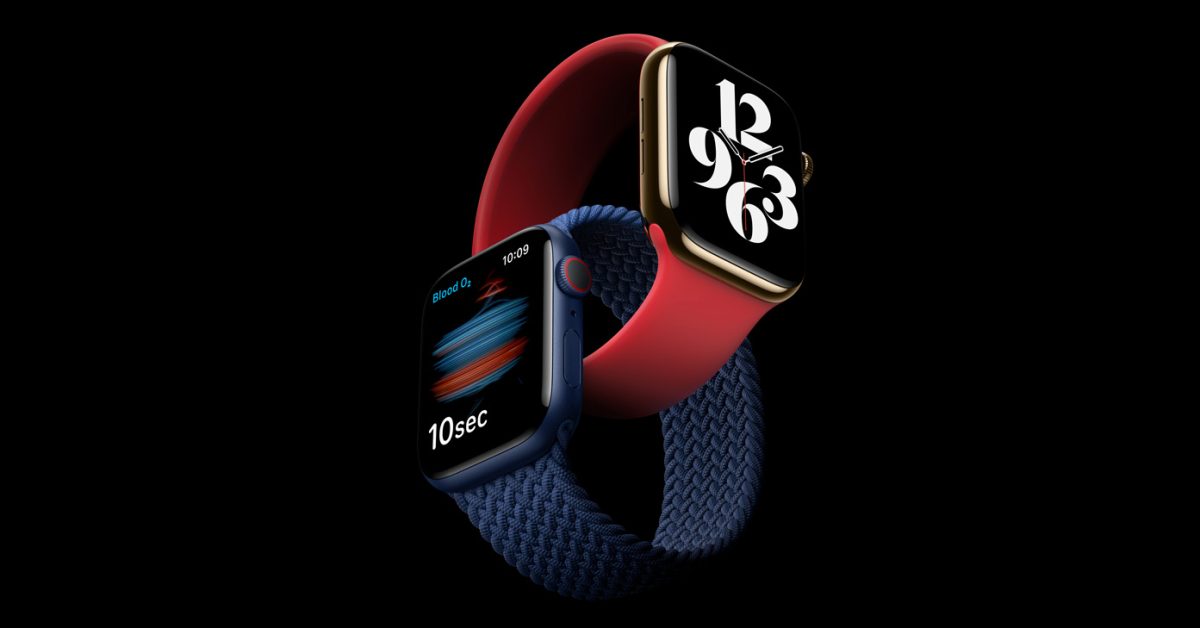He highlighted a pair of new studies By prof CBS News Transfer The indication that smart watches like the Apple Watch can help detect COVID-19 before symptoms or a positive test appears. The studies, conducted separately by Mount Sinai Health System in New York and Stanford University in California, give experts hope that Apple Watch will help “play a vital role in eliminating the epidemic and other infectious diseases.”
search Performed by Mount Sinai It found that the Apple Watch was able to detect “subtle changes in an individual’s heartbeat” up to seven days before symptoms of COVID-19 or a positive test appeared. The study analyzed heart rate variability, or the difference in time between heartbeats, and included nearly 300 healthcare workers who wore Apple watches between April 29 and September 29.
The report states that this is a commonly used measure of how well a person’s immune system is working.
Said Rob Herton, assistant professor of medicine at Icahn School of Medicine in Mount Sinai in New York City and author of The Warrior Watch study.
“We already knew that the signs of a changing heart rate change as inflammation progresses in the body, and that Covid is an incredibly inflammatory event,” Herten told CBS MoneyWatch. “It allows us to predict how people will be infected before they know it.”
“At the moment, we rely on people who say they are sick and not feeling well, but wearing an Apple Watch does not require any active user intervention and can identify people who may not be showing symptoms. It is a way to better control infectious diseases,” Hirten said.
Meanwhile, a separate study of Stanford, Whose results were released in November, included activity trackers from Garmin, Fitbit, and Apple. The study found that these devices could indicate changes in heart rate at rest “up to nine and a half days before symptoms appear” in patients with coronavirus.
The study said researchers were able to identify nearly two-thirds of the COVID-19 cases four to seven days before symptoms appeared.
The team also created an alarm system that alerts the wearer to an elevated heart rate for an extended period of time.
“We set the alarm with a certain sensitivity, so it will go off every two months or so,” said Michael Snyder, a professor at Stanford University who led the study. “Regular fluctuations won’t trigger the alarm – only big, constant changes will.”
“It’s a big deal because it alerts people not to go out and meet people,” he added. When Snyder’s alarm recently went off, for example, he called off a face-to-face meeting in case he could have contracted an infection.
Snyder went on to explain that this type of technology could help offset flaws in testing strategies. “The problem is you can’t do it [testing] On people all the time, while these devices monitor you 24/7. “
Apple did not fund or participate in either of these studies, unlike other smartwatches and wearable companies that have conducted similar studies, such as Oura Health and Whoop.
Centers for Disease Control and Prevention I posted a template Last week indicates how Apple Watch and other smartwatches can help curb the spread of COVID-19 by asymptomatic carriers.
FTC: We use affiliate links to earn income. More.

“Organizatorius. Rašytojas. Blogio kavos vėpla. Bendras maisto evangelistas. Visą gyvenimą alaus gerbėjas. Verslininkas.”






/cdn.vox-cdn.com/assets/4286037/IMG_8743_-_Version_2__1_.jpg)
